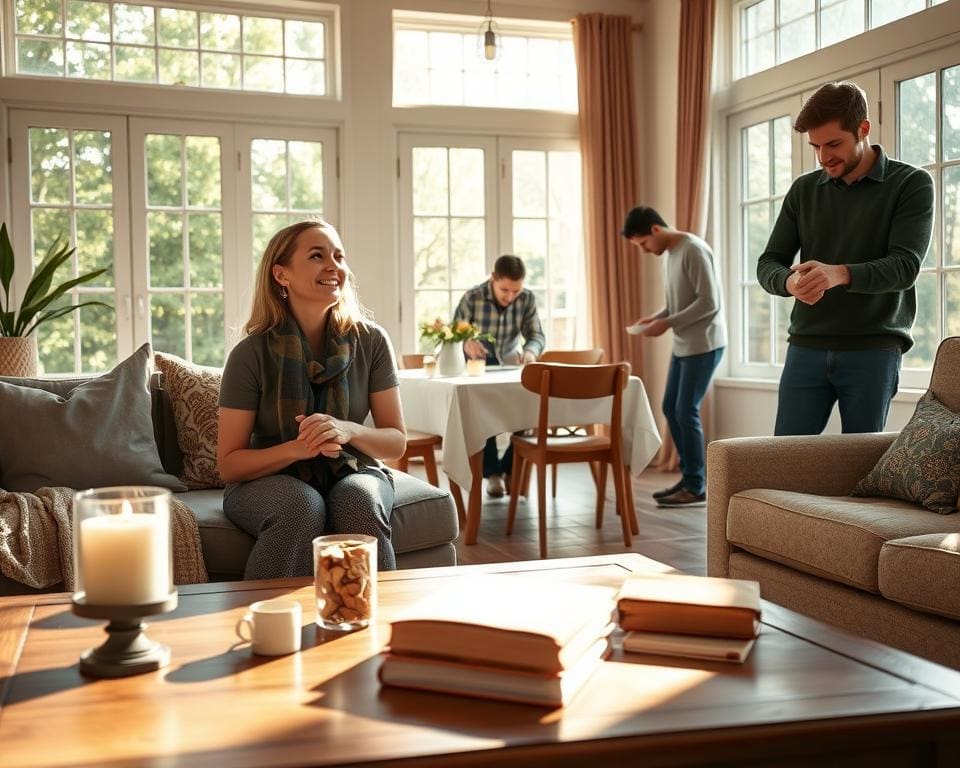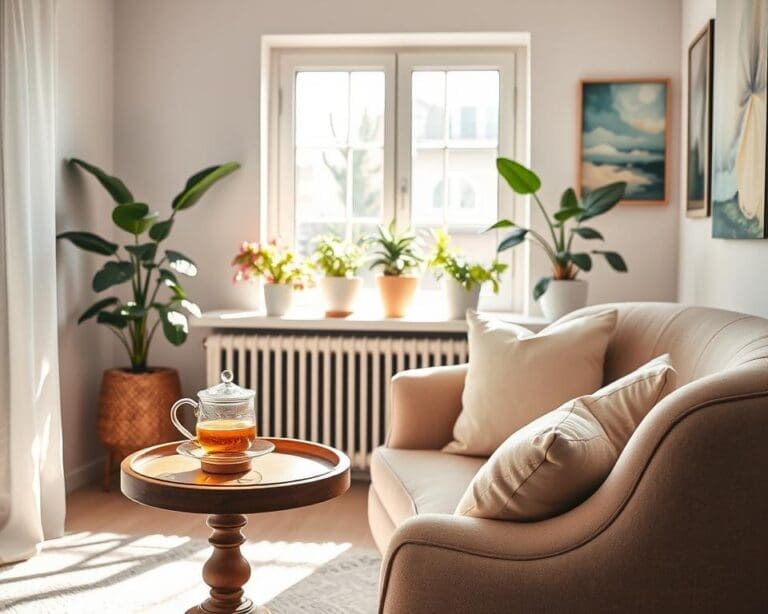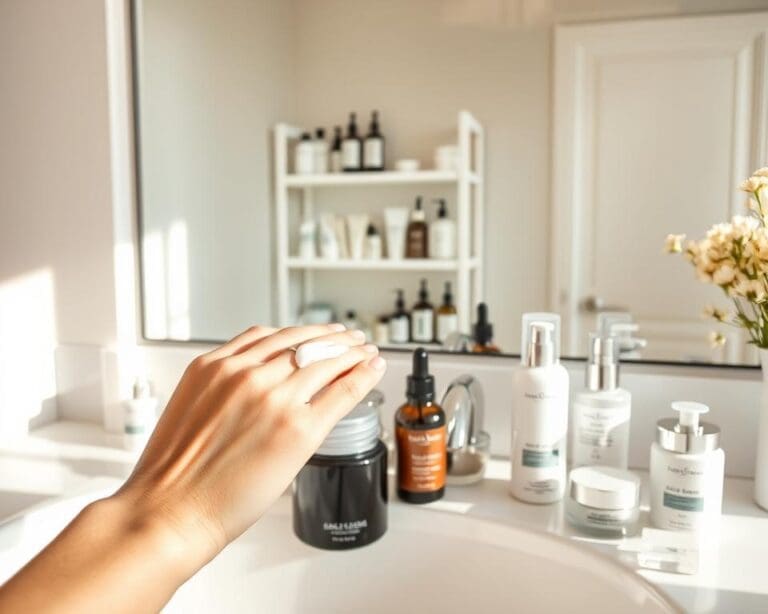In our daily lives, rituals play a transformative role, transcending mere habits to become powerful practices that shape our experiences. By incorporating intentional rituals into our daily routine, we can enhance our productivity, cultivate mindfulness, and ultimately foster personal transformation. Insights from Charles Duhigg’s “The Power of Habit” highlight how structured behaviours can redefine our routines, while research from the University of California links rituals to improved emotional resilience. Furthermore, articles from the Harvard Business Review emphasise that rituals can significantly bolster time management, guiding us to lead more satisfying and focused lives.
The Importance of Rituals in Daily Life
Rituals play a significant role in our daily lives, offering structure and a sense of meaning. With defined purposes, these intentional acts are distinct from habitual actions, enriching our emotional well-being and mental balance. Understanding the importance of rituals allows individuals to incorporate them into their daily practices, enhancing both personal and collective experiences.
Defining Rituals and Their Purpose
Rituals can be defined as intentional activities or ceremonies carried out with purpose. These practices create a framework within which individuals can navigate their lives. While some may view rituals as mere customs, they are essential in providing a foundation for routine. The importance of rituals extends beyond tradition; they confer individual meanings and contribute to a greater sense of community.
Emotional and Psychological Benefits
Engaging in rituals can lead to significant psychological benefits. Research indicates that these activities can reduce anxiety and improve coping mechanisms. Through regular participation in rituals, individuals may experience enhanced emotional well-being, creating stability in their lives. Rituals foster a sense of belonging and connection, essential elements for mental health. By recognising and embracing the importance of rituals, individuals can cultivate more fulfilling daily practices.

How do rituals shape your day?
Rituals play a crucial role in daily shaping, influencing both productivity and overall well-being. By establishing effective morning rituals, individuals can set a positive tone for the day ahead. These rituals can include activities such as meditation, exercise, or journaling, all contributing to heightened focus and clarity. Research shows that those who stick to morning routines often experience enhanced productivity levels, paving the way for a successful day.
The Role of Morning Rituals
Starting the day with well-defined morning rituals fosters an atmosphere of intention. Activities like stretching or momentary solitude can lead to a sense of calm and readiness. Incorporating elements like hydration and a healthy breakfast boosts energy levels, stimulating mental sharpness. This focus on wellness creates a solid foundation that shapes the entire day’s productivity.
Transforming Your Evening Routine
Evening routines provide a vital opportunity for reflection and preparation for the coming day. Establishing a calming evening ritual, such as reading or gentle yoga, promotes better sleep hygiene while allowing the mind to unwind. Effective evening routines can significantly enhance lifestyle enhancement by nurturing a state of readiness for the next day. It’s a chance to set intentions, ensuring that morning rituals evolve seamlessly into a productive day.
Creating Productive Rituals for Success
Establishing productive rituals plays a vital role in achieving both personal and professional success. By integrating these rituals into daily routines, individuals can enhance work-life integration while promoting efficiency. Rituals provide structured approaches to goal setting, enabling an individual to align their aspirations with actionable steps.
Integrating Work and Personal Life
To achieve a seamless balance between work and personal life, consider adopting rituals that celebrate both environments. This can involve creating specific times for focused work, followed by periods dedicated to personal interests. Such strategies not only increase efficiency but also foster a sense of fulfilment.
- Designate a workspace that encourages productivity.
- Incorporate regular breaks to rejuvenate the mind.
- Practice mindfulness techniques to maintain focus.
Setting Goals through Rituals
Rituals can significantly impact goal setting. By embedding rituals in the process, individuals create a repetitive framework that reinforces commitment to their objectives. Employing specific strategies, such as visualising success or writing down milestones, can streamline this process.
- Identify clear, measurable goals.
- Develop a routine that includes reviewing progress regularly.
- Celebrate small victories to maintain motivation.
Mindful Rituals for Improved Well-being
In today’s fast-paced world, integrating mindful rituals into daily life can significantly enhance well-being. These practices cultivate mental clarity and emotional stability, ultimately fostering a healthy mind and body connection. Engaging in mindfulness techniques allows individuals to centre themselves and promote self-care, significantly benefiting psychological health.
The Connection between Mindfulness and Rituals
Mindfulness and rituals intersect beautifully, offering a pathway to improved emotional regulation. By committing to regular mindful rituals, individuals can cultivate greater awareness of their thoughts and feelings. This heightened sense of awareness contributes not only to self-discovery but also to enhanced well-being. Incorporating such rituals into daily life can lead to a calmer mindset and a more balanced emotional state.
Examples of Mindful Practices
There are numerous ways to incorporate mindful rituals into everyday life, making it easier to embrace well-being practices. Consider these effective examples:
- Mindful breathing: Take a few minutes each day to focus on your breath, allowing yourself to become fully present.
- Gratitude journaling: Write down three things you are grateful for daily to nurture positivity and mental clarity.
- Sensory practices: Engage your senses by exploring textures, scents, and sounds in your environment to ground yourself in the moment.
Rituals in Different Cultures
Cultural rituals play a vital role in shaping the fabric of societies worldwide. Exploring global traditions reveals how these practices reflect the identities, values, and beliefs of various communities. Understanding these rituals offers profound insights into the diversity of human experience. Anthropological studies illustrate the significance of practices such as the Japanese tea ceremony and various Native American rituals, highlighting their importance in maintaining cultural heritage.
Exploring Global Perspectives
Across continents, rituals encapsulate deeply rooted customs that help individuals communicate their cultural identity. These practices foster social cohesion, creating a sense of belonging among community members. Insights from cultural psychologists emphasise how rituals contribute to personal development, illustrating how participating in such traditions can enhance one’s understanding of oneself.
Learning from Cultural Traditions
Embracing the diversity of global traditions can enrich our lives. Exposure to different cultural rituals opens pathways for greater empathy and understanding. Engaging with these practices can inspire individuals to integrate elements of other traditions into their daily lives, leading to a more fulfilling existence. This cross-cultural exploration not only promotes appreciation but also encourages a harmonious coexistence among diverse groups.
Evaluating Your Current Rituals
Engaging in the practice of evaluating rituals offers a vital opportunity for self-assessment and personal growth. As you reflect on your daily routines, consider what resonates with you and supports your aspirations. Effective practices can be identified when you take the time to scrutinise your habits, allowing you to distinguish between those that elevate your life and those that may hold you back.
Self-help literature consistently highlights the significance of ongoing evaluation in fostering personal development. By actively assessing your current rituals, you enable yourself to pivot and adapt to new circumstances. This adaptability is essential not only for sustainability but also for achieving lasting happiness. The ability to modify your rituals in response to shifts in your life can propel you toward greater fulfilment.
Utilising reflective journaling can serve as a powerful tool for critically examining your rituals. Documenting your thoughts not only clarifies your experiences but can also shed light on patterns that may be beneficial or detrimental to your well-being. As you embark on this journey of evaluation, remember that the path to personal growth is continuous; it requires a willingness to assess and refine effectively, ensuring that your rituals align with your evolving self.









